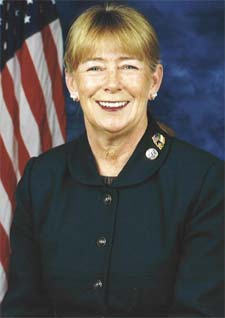
| Monday, July 11, 2011 | Archives | Advertise | Online Buyer's Guide | FLEETSolutions |
Safe Drivers Act Of 2011 Introduced To Congress
 Rep. Carolyn McCarthy, D-N.Y., has introduced legislation that would federalize driving and cell phone usage, laws that are currently managed by individual states. Under the proposed legislation, the bill would direct the U.S. Department of Transportation to set up a nationwide standard, prohibiting cell phone use while driving. The lone exception would allow drivers to call for help during an emergency. Rep. Carolyn McCarthy, D-N.Y., has introduced legislation that would federalize driving and cell phone usage, laws that are currently managed by individual states. Under the proposed legislation, the bill would direct the U.S. Department of Transportation to set up a nationwide standard, prohibiting cell phone use while driving. The lone exception would allow drivers to call for help during an emergency."Driving while making a phone call, texting, or using apps can be as dangerous as driving drunk, and is much more common," Rep. McCarthy said. "With some basic common sense rules that are already in place in some parts of the country, we can reduce injuries and save lives in America." The proposed legislation includes some exclusions such as allowing drivers to use voice-operated, vehicle-integrated devices, as well as voice-operated GPS systems. This distinction is important as many of today's technologies such as Ford Sync allow for hands-free phone usage. McCarthy's bill would require the DOT to conduct a study on distracted driving, focusing particularly on the issue of cognitive distraction and the impact of distraction on young and inexperienced drivers. Within two years, the DOT would be required to report its findings to Congress, providing recommendations for revising the minimum distracted driving prohibitions and penalties states must comply with. States would be given two years to comply with the law or face a twenty-five percent reduction in federal highway funding. The proposed legislation is similar to the existing federal blood alcohol content standard, whereby states are punished if found not to be in compliance with the law. As of this writing, all fifty states and the District of Columbia are following the BAC standard. At present, legislation on the state level varies widely, with some states offering strict laws to prevent distracted driving while other states have no restrictions at all. Most states ban teenagers from talking on the phone while driving, while texting while driving is forbidden nearly everywhere. McCarthy's bill, if it were to become law, would present a seamless law across the land, requiring motorists to follow or face the consequences. The National Highway Traffic Safety Administration reports that 5,474 people died as a result of driver distraction in 2009, accounting for approximately one in six of all auto crash related fatalities that year. |
 |
NAFA Fleet Management Association 125 Village Blvd., Suite 200 Princeton, NJ 08540 Telephone: 609.720.0882 Fax: 609.452.8004 |






